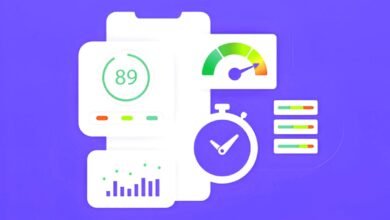How to Create and Manage a Blog

Starting a blog is not just about putting your thoughts online; it’s about building a platform that resonates with your audience, establishes your authority, and even provides a potential source of income. Whether you’re a seasoned blogger or stepping into the blogosphere for the first time, this comprehensive guide will take you through the essential steps of creating and managing a successful blog.
Read More: How can Social Platforms be Utilized for Blogging?
Introduction to Create and Manage a Blog

In an era dominated by digital content, blogs have become more than personal diaries; they’re powerful tools for communication, education, and connection. Recent statistics underscore the growing importance of blogs, indicating a surge in both creators and consumers. In this guide, we’ll explore how to navigate the intricate world of blogging to ensure your journey is not only enjoyable but also rewarding.
Choosing a Niche
The foundation of a successful blog is a well-defined niche. Begin by understanding your interests and areas of expertise. Research potential niches, considering both personal passion and market demand. Evaluate the competition within each niche to identify a sweet spot where your unique voice can shine.
Setting Up Your Blog
Your blogging journey starts with setting up the technical infrastructure. Choose a domain name that reflects your blog’s identity and is easy for your audience to remember. Opt for a reliable hosting provider to ensure your blog is accessible and responsive. Install a content management system (CMS) like WordPress, making it user-friendly to manage and publish your content.
Customizing the Design
The visual appeal of your blog is crucial for attracting and retaining readers. Select a responsive and user-friendly theme that aligns with your brand. Enhance functionality by adding essential plugins that optimize user experience. Establish a unique brand identity by incorporating a distinctive logo and a color scheme that reflects the tone of your blog.
Creating Quality Content
Content is king in the blogging world. Focus on creating content that is not only informative but also engaging. Craft compelling headlines that draw readers in, and use multimedia elements like images, videos, and infographics to enhance the overall reader experience. Strive for a balance between quality and quantity.
SEO Basics for Bloggers

Understanding the basics of Search Engine Optimization (SEO) is crucial for increasing your blog’s visibility. Identify relevant keywords in your niche and strategically incorporate them into your content. Implement on-page SEO techniques such as meta tags and headers, and work on building quality backlinks to improve your blog’s search engine ranking.
Engaging with Your Audience
Building a community around your blog involves active engagement. Leverage social media platforms to share your content and interact with your audience. Respond promptly to comments and feedback, fostering a sense of community. Consider incorporating user-generated content, turning your blog into a two-way conversation.
Monetizing Your Blog
As your blog gains traction, explore various monetization methods. Set up affiliate marketing programs, implement display advertising, and consider sponsored content opportunities. Diversifying your revenue streams not only provides financial stability but also allows you to focus on creating valuable content.
Managing Your Blog Schedule
Consistency is key in the blogging world. Create a content calendar to plan and organize your posts. Find a posting frequency that aligns with your audience’s expectations and your ability to consistently deliver high-quality content. Establishing a routine helps build trust with your audience.
Dealing with Challenges
Blogging comes with its set of challenges. Writer’s block, negative comments, and adapting to algorithm changes are all part of the journey. Overcome writer’s block by experimenting with different writing environments and exploring new topics. Address negative comments professionally, and stay informed about industry trends to adapt to algorithm changes.
Analyzing and Improving
Regularly analyze your blog’s performance using analytics tools. Gain insights into your audience’s behavior, popular content, and areas for improvement. Use this data to make informed decisions and continuously refine your content strategy. Staying updated on industry trends ensures your blog remains relevant and competitive.
Legal Considerations
Understanding and adhering to legal considerations is crucial for the long-term success of your blog. Familiarize yourself with copyright laws to avoid legal complications. Clearly disclose sponsored content, adhering to transparency standards. Consider trademarking your brand if necessary to protect your intellectual property.
Networking and Collaborations
Building a network within the blogging community is mutually beneficial. Connect with other bloggers, explore collaboration opportunities, and consider attending industry events. Networking provides valuable insights, support, and potential partnerships that contribute to the growth of your blog.
Staying Inspired

Maintaining a blog requires creativity and inspiration. Stay curious, explore different perspectives, and keep up with industry developments to find new ideas. Invest in your continued education within your niche, attending workshops or online courses to stay relevant and inspire your audience.
Conclusion
Creating and managing a blog is a dynamic and rewarding journey. By following these steps and staying committed to providing valuable content, you can build a successful blog that resonates with your audience. Start your blogging adventure today and watch as your platform grows and evolves.
Read More: 15 Best AI Video Generators for Freelancers
FAQs:
- How often should I post on my blog for optimal results? The frequency of your posts depends on your niche and audience. Consistency is key, so aim for a schedule that you can sustain.
- Can I monetize my blog from the beginning? While it’s possible, focus on building a solid foundation and audience first. Monetization strategies tend to be more effective with an engaged readership.
- How do I deal with writer’s block? Experiment with different writing environments, take breaks and explore new topics. Sometimes, stepping away can bring fresh inspiration.
- Is social media essential for a blog’s success? Social media can significantly boost your blog’s visibility and engagement. Choose platforms relevant to your audience and share your content strategically.
- What legal considerations should I be aware of when blogging? Understand copyright laws, disclose sponsored content transparently, and consider trademarking your brand if necessary.







